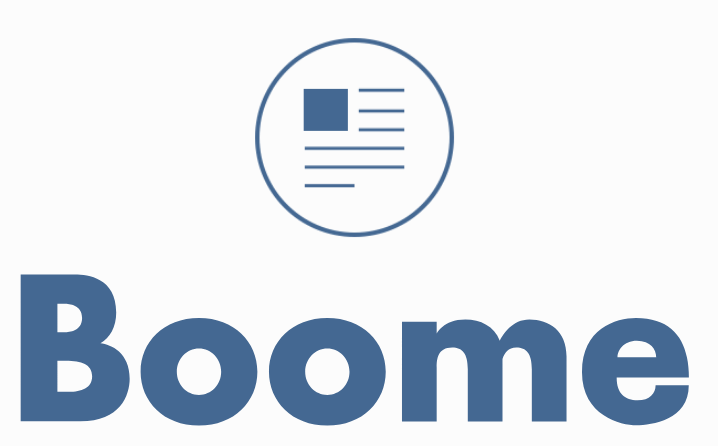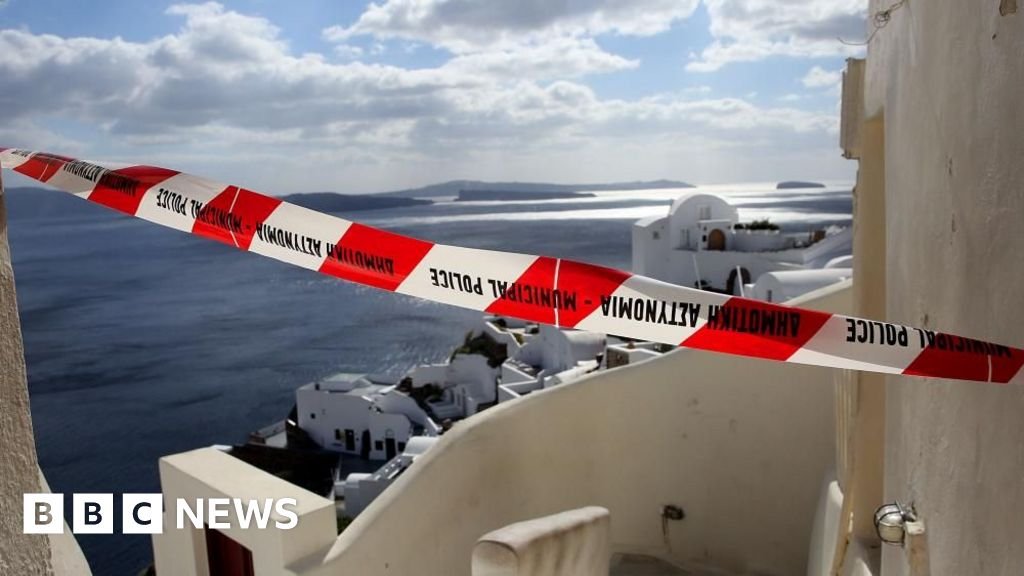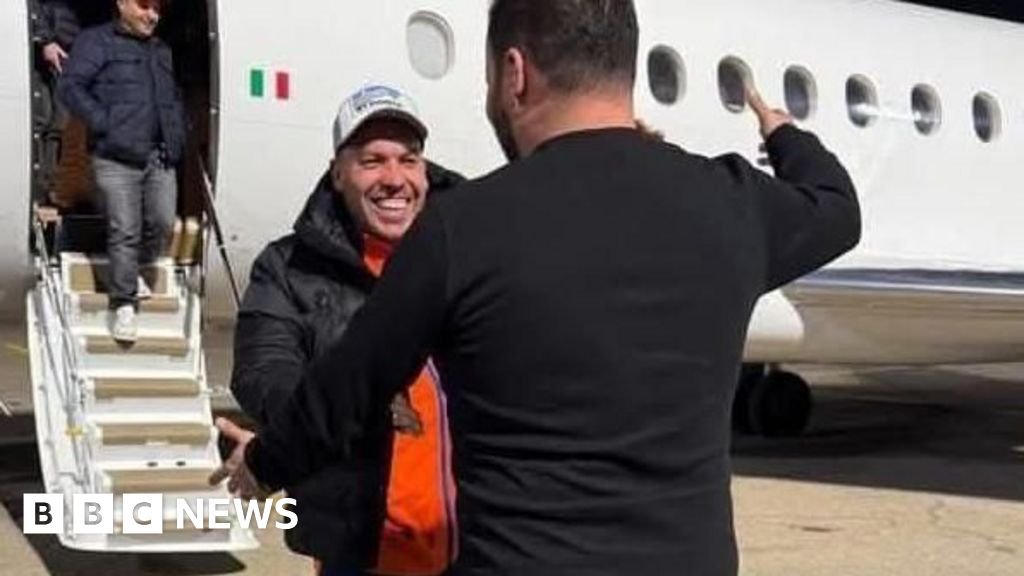‘I’m alive thanks to US foreign aid’
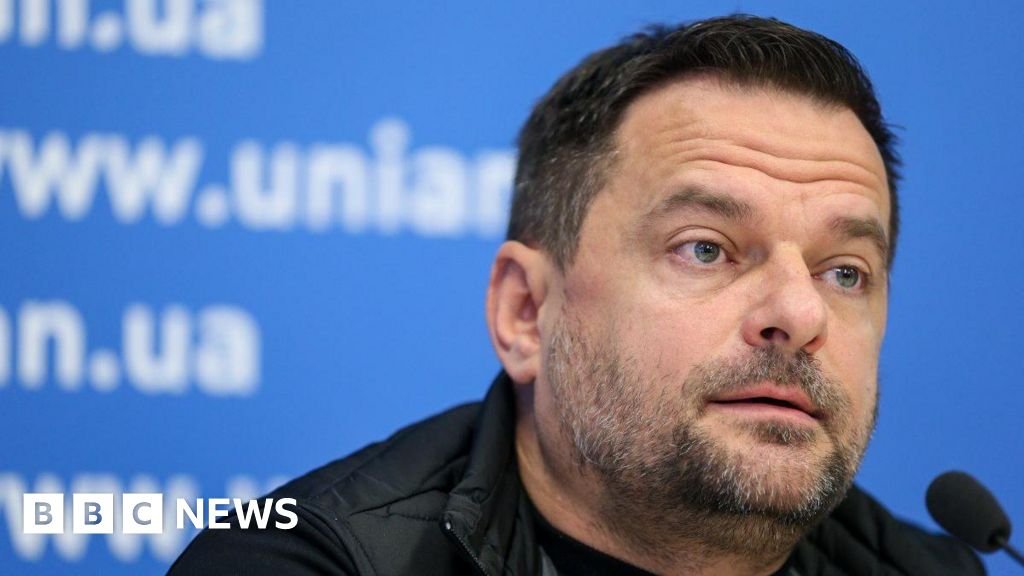
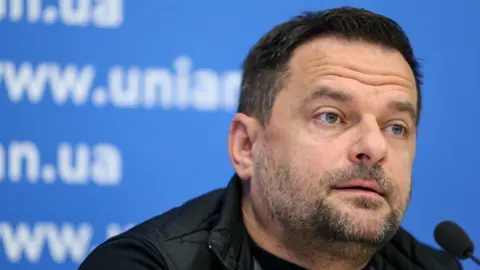 UNIAN
UNIAN“I’m alive thanks to USAID,” says Dmytro Sherembey.
He’s been living with HIV for 24 years in Ukraine, and says the agency, which distributes billions of dollars of aid around the world, has helped prevent the virus from spreading there.
“Every second HIV-positive person in Ukraine was identified thanks to this programme,” Mr Sherembey adds.
But the future of USAID (the United States Agency for International Development) is now very uncertain.
One of US President Donald Trump’s first actions after returning to office was signing an executive order pausing almost all foreign assistance for 90 days while a review could be carried out. He has said USAID is run by “radical left lunatics” and is getting away with “tremendous fraud” – without giving evidence.
Mr Sherembey, who heads 100% Life, the largest patient-led organisation in Ukraine, recalls that when Russia launched its full-scale invasion of Ukraine in 2022, warehouses storing HIV medication were bombed.
It was USAID assistance that made it possible to quickly procure replacement medication and distribute it across the country, he explains.
“USAID’s slogan is that this is assistance from the American people. But it turns out that this aid could be stopped by the decision of one person,” he says.
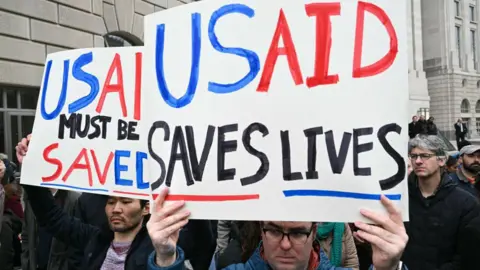 Getty Images
Getty ImagesUSAID was established in 1961 by President John F Kennedy. It has around 10,000 employees and a budget of nearly $40bn (£32.25bn), out of a total of $68bn in US government foreign aid spending.
It has bases in more than 60 countries, and works in dozens of others. However, most of the work on the ground is carried out by other organisations that it contracts and funds.
The range of activities it undertakes is vast. Its work includes providing food in countries where people are starving, to operating the world’s gold-standard famine detection system, which uses data analysis to try to predict where food shortages are emerging.
Elon Musk – the world’s richest man, who has been tasked by Trump with shrinking the US federal government – has called the agency “a criminal organisation”, without providing evidence, and has said it is “time for it to die”.
But in countries such as Afghanistan, the end of USAID could cause huge problems. The agency is one of the biggest donors to the country’s health sector, funding projects that provide life-saving services to mothers and children.
A doctor responsible for USAID-funded projects there says more than 60 of his team, including midwives, nurses and doctors, were told to stay at home after funding was paused.
“The future appears bleak and the impact on patients is massive,” he says.
“If the funding halt continues, mothers will be forced to give birth at home as the facilities are closed and it will increase mortality rates,” one midwife says.
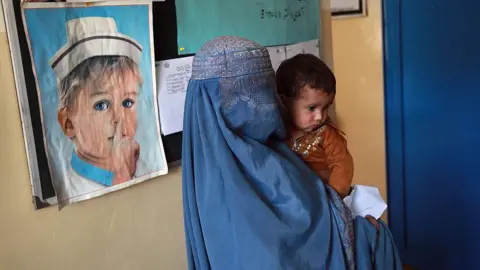 Getty Images
Getty ImagesUSAID’s work also branches out into areas like cybersecurity. One Iranian activist, focusing on anti-censorship, says their organisation operates with USAID funding.
“If an opposition figure, a university student, or a women’s rights activist is arrested in Iran, it is NGOs like the one I work for that immediately act so the person’s email and social media accounts are locked and removed,” says the activist, who requested anonymity due to fear of reprisals.
This has meant that if Iranian intelligence agents force detainees to reveal their passwords, they cannot access that person’s communications, the activist says.
“If an internet company works with the regime to restrict Iranians’ access to the internet, we expose them publicly and get them… sanctioned by the EU and the US,” the activist adds.
“All of this work is now about to be stopped because of the funding freeze.”
Among its other activities, USAID also grants scholarships – with 1,077 undergraduate students in Egypt alone receiving money. Trump’s pause on international spending and his comments on USAID have thrown the futures of these students into doubt.
“I feel like I don’t know my fate. I was once a top student with a bright future, but now my future looks dark, and I fear heading in the wrong direction,” said Mohamed Ashraf, one of the affected students.
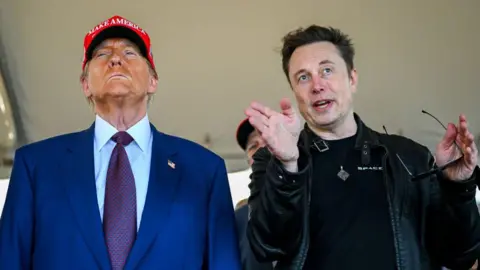 Getty Images
Getty ImagesTrump is a long-term critic of overseas spending, and has said it does not represent value for money for American taxpayers – singling out USAID, which he has described as wasteful. But whether he can actually shut down the agency is not yet clear.
Closing USAID altogether, as Musk wants, would likely require an act of Congress – in which Trump’s Republican Party holds slim majorities in both chambers.
The administration reportedly intends to merge the US government’s main overseas aid agency with the Department of State. Secretary of State Marco Rubio says he is now the acting head of the agency – which says thousands of its staff around the world will be put on leave at the end of the week.
For Mr Sherembey in Ukraine, the stakes couldn’t be higher.
“My life is now at risk. If my hospital runs out of this medication, I will have to search for it elsewhere,” he says.
“But the tragedy for an HIV-positive person in Ukraine is that you cannot simply go to a pharmacy and buy these drugs. You cannot buy them on the black market. HIV-positive people here have no alternatives,” he adds.
“It is barbaric that we have returned to the Stone Age.”
Reporting by Diana Kuryshko, BBC Ukrainian; Hafizullah Maroof, BBC Afghan; Maryam Zohdi, BBC Persian; Rehab Ismail, BBC Arabic; George Wright
https://ichef.bbci.co.uk/news/1024/branded_news/f4cd/live/e5638e10-e3d9-11ef-a3e9-f7d24490089c.jpg
2025-02-06 01:09:50
